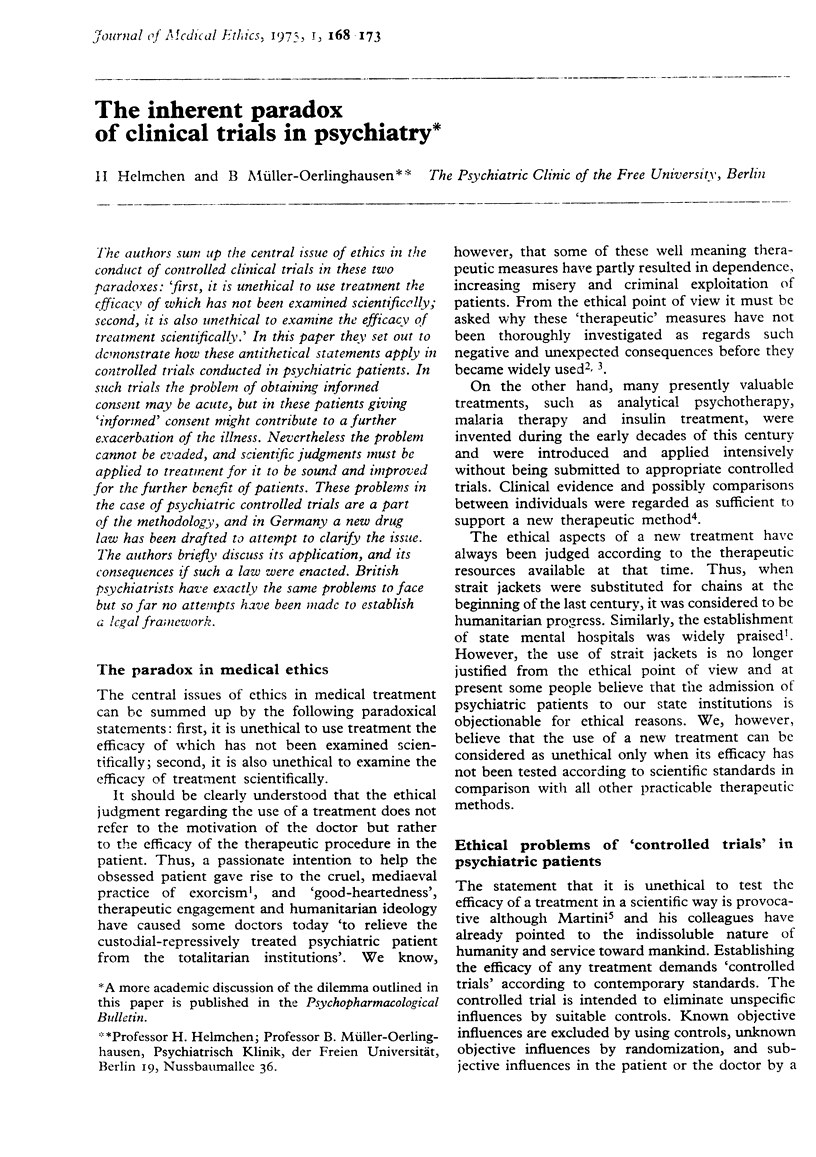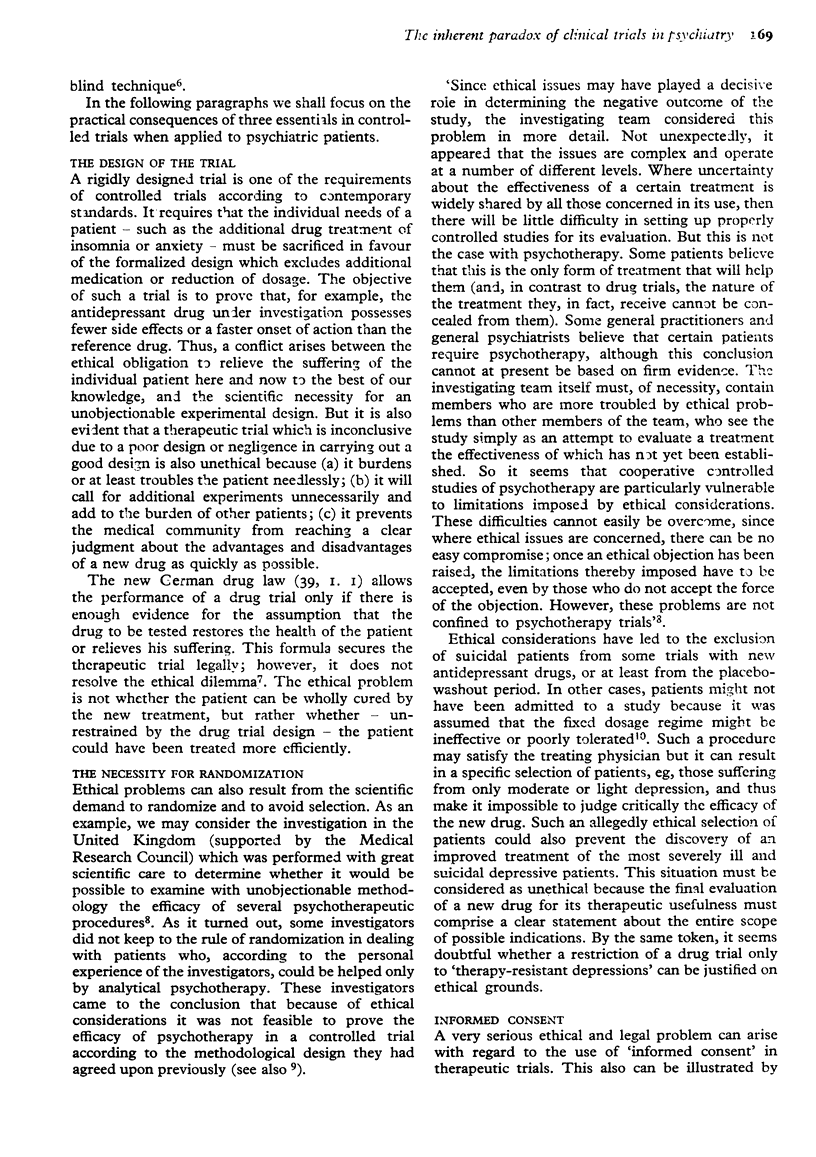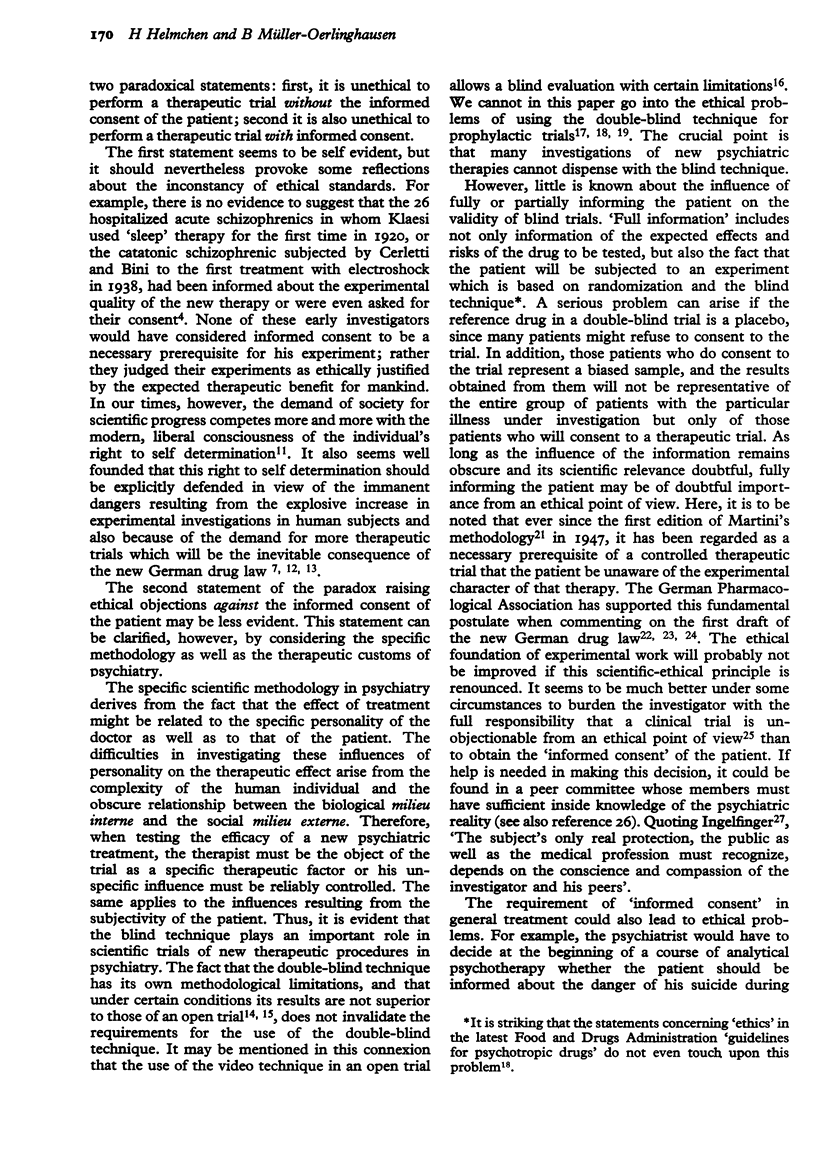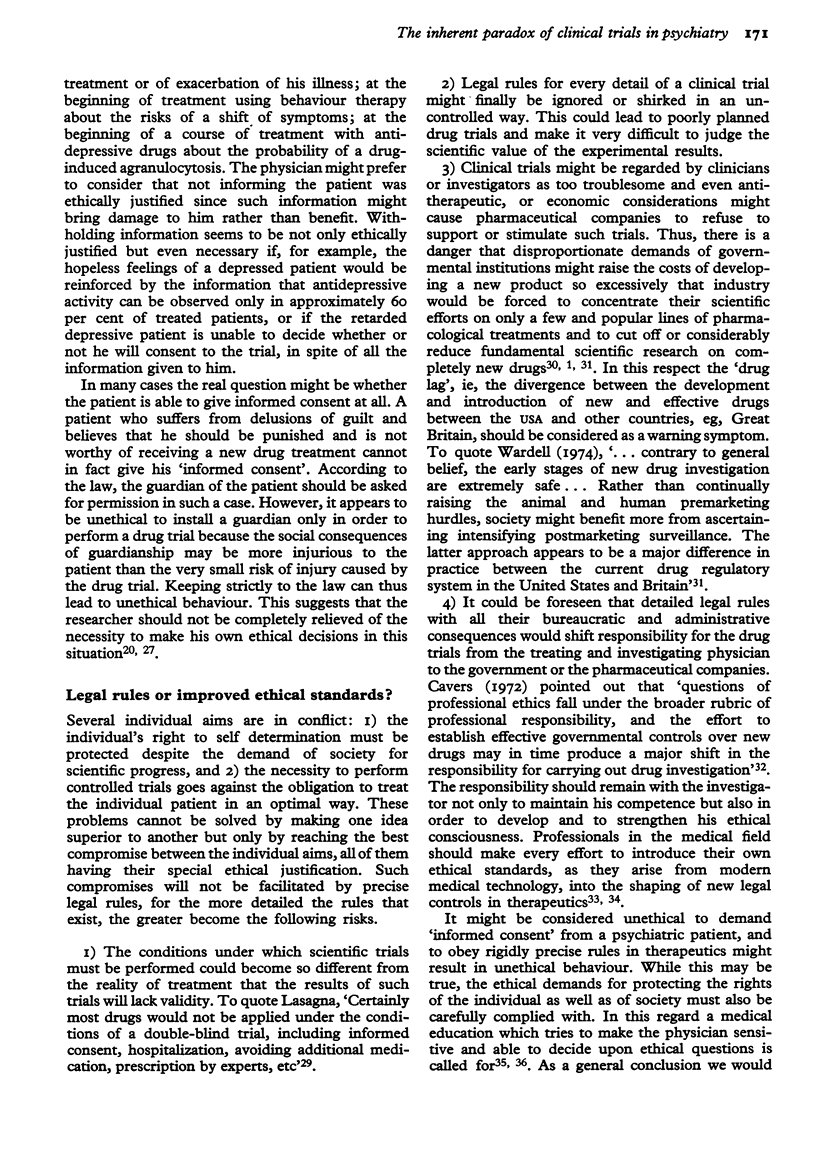Abstract
The authors sum up the central issue of ethics in the conduct of controlled clinical trials in these two paradoxes: 'first, it is unethical to use treatment the efficacy of which has not been examined scientifically; second, it is also unethical to examine the efficacy of treatment scientifically.' In this paper they set out to demonstrate how these antithetical statements apply in controlled trials conducted in psychiatric patients. In such trials the problem of obtaining informed consent may be acute, but in these patients giving 'informed' consent might contribute to a further exacerbation of the illness. Nevertheless the problem cannot be evaded, and scientific judgments must be applied to treatment for it to be sound and improved for the further benefit of patients. These problems in the case of psychiatric controlled trials are a part of the methodology, and in Germany a new drug law has been drafted to attempt to clarify the issue. The authors briefly discuss its application, and its consequences if such a law were enacted. British psychiatrists have exactly the same problems to face but so far no attempts have been made to establish a legal framework.
Full text
PDF





Selected References
These references are in PubMed. This may not be the complete list of references from this article.
- Baastrup P. C., Poulsen J. C., Schou M., Thomsen K., Amdisen A. Prophylactic lithium: double blind discontinuation in manic-depressive and recurrent-depressive disorders. Lancet. 1970 Aug 15;2(7668):326–330. doi: 10.1016/s0140-6736(70)92870-9. [DOI] [PubMed] [Google Scholar]
- Candy J., Balfour F. H., Cawley R. H., Hildebrand H. P., Malan D. H., Marks I. M., Wilson J. A feasibility study for a controlled trial of formal psychotherapy. Psychol Med. 1972 Nov;2(4):345–362. doi: 10.1017/s0033291700045165. [DOI] [PubMed] [Google Scholar]
- Halleck S. L. Legal and ethical aspects of behavior control. Am J Psychiatry. 1974 Apr;131(4):381–385. [PubMed] [Google Scholar]
- Helmchen H., Müller-Oerlinghausen B. Psychopharmakologie und psychiatrische Facharztweiterbildung. Nervenarzt. 1973 Apr;44(4):204–206. [PubMed] [Google Scholar]
- Ingelfinger F. J. Informed (but uneducated) consent. N Engl J Med. 1972 Aug 31;287(9):465–466. doi: 10.1056/NEJM197208312870912. [DOI] [PubMed] [Google Scholar]
- Lauritsen B. J., Madsen H. A multinational, double-blind trial with a new antidepressant maprotiline (Ludiomil) and amitriptyline. Acta Psychiatr Scand. 1974;50(2):192–201. doi: 10.1111/j.1600-0447.1974.tb08208.x. [DOI] [PubMed] [Google Scholar]
- Renfordt E. Audio-visuelle Methoden in der Psychiatrie. Nervenarzt. 1974 Oct;45(10):505–509. [PubMed] [Google Scholar]
- Richardson J. Morale in clinical medicine. The forty-sixth Maudsley Lecture. Br J Psychiatry. 1972 Jun;120(559):593–599. doi: 10.1192/bjp.120.559.593. [DOI] [PubMed] [Google Scholar]
- Schou M. Heutiger Stand der Lithium-Rezidivprophylaxe bei endogenen affektiven Erkrankungen. Nervenarzt. 1974 Aug;45(8):397–418. [PubMed] [Google Scholar]
- Veatch R. M., Gaylin W. Teaching medical ethics: an experimental program. J Med Educ. 1972 Oct;47(10):779–785. [PubMed] [Google Scholar]
- Wardell W. M. Therapeutic implications of the drug lag. Clin Pharmacol Ther. 1974 Jan;15(1):73–96. doi: 10.1002/cpt197415173. [DOI] [PubMed] [Google Scholar]
- Wing J. Die Evaluation gemeindenaher psychiatrischer Dienste. Einige methodologische Probleme. Arch Psychiatr Nervenkr (1970) 1975 Sep 18;220(3):245–254. doi: 10.1007/BF00342333. [DOI] [PubMed] [Google Scholar]


